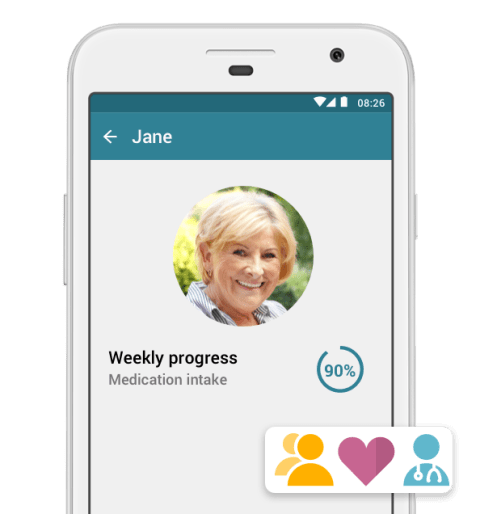Thanks to advancing medical technology and research, people are living longer than ever before. Of course, this is very positive overall. However, as people age, they become more susceptible to neuropsychiatric disorders. As the number of elderly people increases, so do cases of neuropsychiatric disorders. This can present challenges for patients, loved ones, and caretakers. That’s why it’s more important than ever to know the signs of common disorders and tips for providing the best support possible.
The most prevalent neuropsychiatric disorders among the elderly:
When people think of neuropsychiatric disorders among elderly people several common conditions probably come to mind. Oftentimes, we make these associations based on our own experiences with aging loved ones. If you’ve spent a lot of time around elderly people it may not be surprising that the most prevalent neuropsychiatric disorders are Alzheimer’s, Parkinson’s disease, dementia, and stroke. Generally, people are at a higher risk of developing each of the above-mentioned conditions as they age. Fortunately, there has been progress in research that has led us to a greater understanding of how we could prevent or reduce the effects of these diseases. We’ll examine some of these techniques in the next section.
Aside from the previously mentioned disorders, elderly patients may also suffer from other neuropsychiatric disorders not typically associated with aging, such as depression, addiction, or PTSD. In some cases, caretakers can overlook signs of these conditions since they aren’t frequently discussed as being prevalent among the elderly. Not to mention, it can be far more difficult to identify symptoms when they occur alongside another disorder such as Alzheimer’s.
Preventing neuropsychiatric disorders in elderly patients:
It’s hard to adequately discuss how to prevent neuropsychiatric disorders, due to the massive range of possible causes and symptoms. However, there are several techniques that researchers have identified as being helpful to maintaining a healthy mind at an old age.
The first and most obvious activity that can help maintain a healthy mind is to stimulate it frequently. Stimulating your mind can be as simple as reading or writing every day. For even more stimulation, advanced activities such as learning a new language or playing an instrument have been shown to provide measurable increases in memory and cognitive abilities. Playing board games is also a great option for many elderly people due to the added social aspect, which can help prevent conditions such as depression and anxiety.
Another way to maintain a healthy mind is through physical activity. This becomes difficult for many people as they age, but older people may still be able to participate in low-impact activities such as stretching or even just going for short walks. Small activities can make a large difference when it comes to preventing neuropsychiatric disorders.
After retiring, many people may find themselves with more free time than they would like. While leisure is important, filling some of that time with a fun new hobby can provide major health benefits. Artistic activities like painting or model building are a great, and very popular option in retirement communities. Not only do these activities help to boost neuroplasticity, but they can also help maintain fine motor skills.
Finally, for elderly people who are capable of caring for a pet, there may be substantial benefits. Studies have shown that pet owners experience increased levels of fitness, lower stress, lower blood pressure, and reduced feelings of loneliness. Even though some of the benefits of pet ownership are not directly related to a healthy mind, a higher overall level of health usually helps mental health as well.
Early signs of neuropsychiatric disorders in elderly patients:
When looking at the early signs of neuropsychiatric disorders in elderly patients we have to remember some amount of mental change is natural. Some changes may seem alarming to loved ones such as occasional forgetfulness that are simply a part of aging. However, there are symptoms to watch out for that can indicate neuropsychiatric disorders. The following list contains signs that may indicate it’s time to speak with a doctor.
- An unexplained drastic change in routines or an inability to maintain the home or yard.
- Serious confusion or difficulty making simple decisions.
- Feeling down for two weeks or more.
- Feelings of misplaced guilt, worthlessness, or deep sadness.
- Serious memory loss (such as asking the same question over and over in one conversation.)
- Loss of interest in social activities.
- Inability to handle personal finances.
- An unexplained lack of energy.
Many of these problems can be difficult to recognize, especially during a pandemic when social distancing is a key consideration. It’s important to try and have candid conversations with elderly loved ones about their feelings and mental health so they can get the assistance they need.
Providing support for elderly patients with neuropsychiatric disorders:
In the same way that it’s difficult to give guidance on preventing neuropsychiatric disorders, it’s difficult to give blanket advice on supporting people with these disorders. Most of the information in this section will be very general and can apply to a wide range of disorders. For more specific guidance, you should consult with a doctor.
When supporting a loved one with a neuropsychiatric disorder, the best thing you can do is ensure they feel comfortable communicating with you. Make sure your loved one knows they can communicate honestly with you about anything they’re feeling. This will help them feel supported and allow you to pass any important information on to healthcare providers.
There’s a very good chance that elderly patients with neuropsychiatric disorders will need to take some form of medication. Whether this medication is related to their mental health or not, helping to manage their medication can make their life easier and give you peace of mind that they’re taking their medication properly. It may also be beneficial to attend Doctor’s appointments with them to ensure that both you and their healthcare provider are kept in the loop on every aspect of their health.
One final tip is to take care of yourself. When a loved one is experiencing a neuropsychiatric disorder, it’s easy to put all your energy into support and forget self-care. Even if your daily routines need to change drastically, trying to exercise, eat healthily, and get enough sleep can make a huge difference in maintaining your own mental and physical health.
Here are some other articles we think you might enjoy:



